Here is a survey about YOUR future when you get older: How do you see the second half of life?
Please go to https://de.surveymonkey.com/r/8NZQ3XV
OUR FIRST COMMUNITY LIVE CONVERSATION – about AGEING
Hear our presentation at the INTEGRAL EUROPEAN CONFERENCE in Hungary,
May 6th, 2016
We were pleased and grateful to witness a lively interest in the topic.
You are invited to join the discussion by filling in the survey above and by joining our Facebook Group http://bit.ly/integralageing
Hear our pre-conference talk about what we will be talking about on May 6th, 2016 in Siofok/Hungary.
Unmasking Internalised Ageism with Susan Farling
An interesting conversation with Susan Farling about our tendency to see everything through the filter of age.
It is surprising how much we have internalised AGEISM, the discrimination by age, towards people of all ages. In the episode we talk especially about the older years of life and how older people themselves reinforce the stereotypes.
Please find the detailed list of topics we talked about here: https://thewisdomfactory.net/susan-farling/
Conscious Ageing encore series
We are happy to offer you more conversations on CONSCIOUS AGEING.
Between October 19th and late November you can assist live or in replay to our conversations with six more amazing guest who want to share their insights and expertise with you! Below you see Dr.Roger Jahnke, a martial arts teacher, who will talk about healing yourself without drugs – but with the wisdom of your body and mind. A rather young man, Nicola Bagalà shares his knowledge about life-extension practises and research and Susan Farling, a licensed counselor and coach will address the ageism which everyone of us is practising towards ourselves and others , which is often out of our conscious awareness.
October 19th we will talk with Nicola Bagalà on the Possibility of extending our lives far beyond of what seems possible right now. More info HERE.
October 26: Dr. Roger Jahnke on Non-Pharmacological healing with Mind-Body practice. Get more info HERE.
November 2nd: Susan Farling will share her insights about Unmasking Internalised Ageism. Find out more HERE.

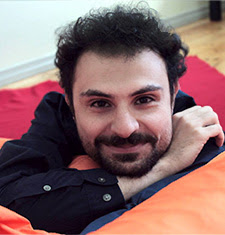
Old age is not a disease: Marc Blesoff in the Wisdom Factory
Marc Blesoff was in conversation with Heidi and Mark about the topic AGEING IN PRISON. Watch live or in replay here!
Read below an article, written by Marc Blesoff and published in a local newspaper before. Reading his text inspired us to invite him to talk with us within the CONSCIOUS AGEING series. He presently is conducting workshops for the ageing population in prison – a group of people who is hardly ever in our conscious awareness. It promises to be a very interesting and informative talk!
Old is not bad. Older people are not suffering a disease called aging.
Depending upon one’s worldview, the last third of life actually gets better!
However, if you think that life peaks in middle age and then it’s all downhill after that, then that’s what you’ll get. It’s a self-fulfilling prophecy.
Inside the ark that the Israelites carried through the wilderness for 40 years there were two sets of tablets bearing the Ten Commandments. The second set was whole. The first set was shattered in pieces, broken after having been smashed to the ground by Moses.
Life is both wholeness and brokenness, birth and death. Aging is not a disease.
We are on the front end of a process that is educating us about ageism. This is helping us to change our thinking about and actions regarding older people in our industrialized societies. What has previously passed as ‘just the way things are’ will no longer be acceptable or tolerated. Ageism will soon be joining the likes of racism, sexism, and homophobia on the wrong side of the moral arc of the universe.
Which is not to say we can just flip a switch and overnight these prejudices will be gone and everyone will change their minds. But becoming aware of something about which we’d previously been clueless affords one the opportunity to change. Awareness doesn’t guarantee change, it allows the possibility.
Ashton Applewhite is an articulate, energetic thought leader and activist who is helping galvanize our awareness about ageism. She has written a book titled This Chair Rocks: A Manifesto Against Ageism. It is thoughtful, well-written and it provides an important glimpse at the elephant in the room named ageism.
(watch the conversation with Ashton Applewhite in our Conscious Ageing series HERE)
Never in human history have so many lived so long
JoAnn Jenkins, the CEO of AARP, writes, “From the beginning of the modern calendar to 1900, life expectancy increased each year by an average of three days. Since 1900 it has increased by an average of 110 days a year. We added more years to average life expectancy in the last century than in all previous history combined.” Globally, human beings are living much longer and having fewer babies.
Dr. Jack Rowe has commented, “There are some who would say that we as a society cannot afford the greatest gift we’ve ever achieved in humankind, which is longer life. If we look at aging the way we have for the last 200 years, we will turn it into a crisis rather than a celebration.”
A crisis rather than a celebration – both societally and personally
Since the Industrial Revolution, our standard model of aging (with some variations on the theme) has been ‘work until retirement, wind down quietly for 2 or 3 years, become invisible and then get warehoused’. But today, those 2 or 3 years of winding down quietly are more like 20 or 30 years.
Humans are at the beginning of a change we can sense but we don’t understand very well yet
Aging/Longevity, like the recently discovered dark energy, is everywhere. We can’t see it clearly yet, we don’t have good language for it yet, but we are starting to know it is there. (It wasn’t that long ago when there wasn’t a phase called adolescence – children got older and then were considered adults.) How can we think outside the box when we don’t know the box exists?
“We can get pretty attached to what we think is true, important and real – even when presented with evidence to the contrary. To a great extent, our worldview determines what we’re capable of seeing and therefore determines our perception of reality. What our worldview doesn’t expand to contain quite literally escapes our perception. We just don’t see it. This perception of reality colors our reactions and actions, every moment of every day.” (Living Deeply: The Art and Science of Transformation in Everyday Life)
Ram Dass has noted, “Once our culture begins to honor intuition, it will expiate the doubt that usually robs intuition of its power, and much of our worldview will change…Perhaps this is somewhat analogous to how the early explorers felt after the theory that the world was flat and that one could disappear over its edge was replaced by the spherical concept of our planet. What courage that theory must have released, thus allowing explorers to go fearlessly into the unknown.”
We are way behind the aging curve. We need to go fearlessly into this unknown, fearlessly but guided by intention – in other words, consciously. One topic we need to explore fearlessly is ageism, one of the biggest elephants in the room.
What Becomes Possible when Getting Older?
What does CONSCIOUS AGEING mean? This question was underlying our broadcast series where we had conversations with more than 20 people, either in one-to-one conversation or in small groups.
The term Aging (or AGEING as we usually spell it) seems to suggest “old age” or “getting old” but, when you look closely, then you find that it doesn’t mean either one necessarily. “Ageing” means just “getting older”, and this process begins right after birth. Nonetheless, the habitual use of the word is so strong that, even we talked mainly about the later years in our human life, and mostly with people over 50 – with a few exceptions, of course.
A Review of the Conscious Ageing Series
Looking backward it seems to me very clear that the older our contributors were, the more they were interested in the topic. The youngest participant in her 30ies could relate best to the concept of AGEISM which affects practically everybody who is not the “right” age for the thing they are attempting to do. This can be the 14-year-old software developer who cannot open a bank account on his own, the singer who at age 40 tries to enter the profession or the 60-year-old woman who dresses like a teenager. All forms of rejection or belittling are an expression of ageism and, as mentioned, does not necessarily only refer to older people who, in their own right, have to face an enormous bunch of prejudice and denigration in our youth-oriented culture.
Getting Older – Getting Happier
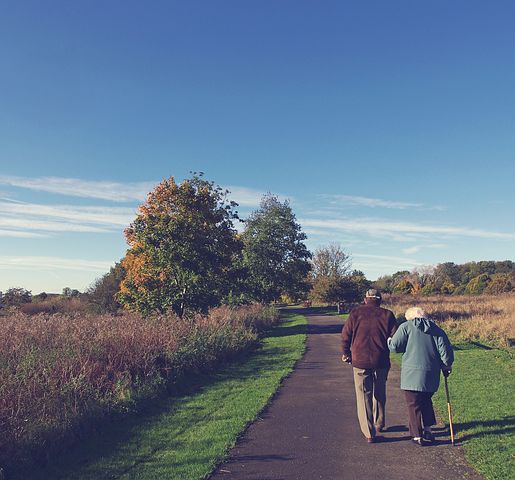 What came out very clear as well is the fact that a completely new generation of “elders” is living in the (western?) world presently. In times when our grandparents were raised, people were really old at 60, dying at 70 or even earlier was normal and when you made it into your 80’s then you were an admirable exception. People in their later years usually spent their time with being bored, waiting for death, taking care for their illnesses, being resentful of children and the younger generations for their obvious lack of respect – and therefore their own loss of being seen as the most important authority in the family.
What came out very clear as well is the fact that a completely new generation of “elders” is living in the (western?) world presently. In times when our grandparents were raised, people were really old at 60, dying at 70 or even earlier was normal and when you made it into your 80’s then you were an admirable exception. People in their later years usually spent their time with being bored, waiting for death, taking care for their illnesses, being resentful of children and the younger generations for their obvious lack of respect – and therefore their own loss of being seen as the most important authority in the family.
Either time never changed and everybody played their roles to previously laid out plans, or, in the 20th century when the old order broke down, older people couldn’t find meaning for their lives anymore through social status and were left alone in uncertainty and helplessness.
Ageing in a New World
This has widely changed now, probably due to the liberation movements f the 60’s which is when today’s older people grew up. We have learned that we are worthy individuals and that we do not depend completely on what society prescribes for our identity. We tried that out in our early days – and that has shifted the world. So why not NOW too when we are older and we don’t want to live a life pre-designed by our contemporary society?
This was the Basso Ostinato, the underlying rhythm in all the conversations we had with our guests: “There must be a different way – and I, myself, do my best to find out how and to co-create a different future, for myself and for others”
A Short Summary of the Conversations
The oldest people in our series all affirmed that with age they have become happier and more satisfied than they ever had been before. The most moving conversation about that probably was the one with father and son Foster (The Secret Promise of Aging watch here). The direct transmission of the joy of life in older years is present in Integral Life Practices for Any Age? by Monika Frühwirth watch here) and the never ending desire to learn new things by Lowell Ann Fuglsang (It’s Never Too Late to Begin your Future watch here). Last and absolutely not least our conversation with the well-known spiritual teacher Terry Patten, who led us in a practice where you can witness the transmission yourself here: Spiritual Lessons and Opportunities that Ripen with Age
Besides Terry Patten, we had other contributors talk about the inner path towards creating a different future for ourselves and others. How fascinating the unexplored possibilities we have as humans! Learn about them here: What about our POSSIBILITIES when we get older? with Jon Freeman. A similar idea is expressed by Tom Christensen: New Capacities Emerge in Our Minds as We Age
Lynn Kreaden gives her perspective on Ageing as an Awakening Process Connie Corley’s ideas on Ageing are expressed in Age is a State of Mind
What specifically can we do as we meet our later years in life? Hans Parge gives you specific tips on how to stay healthy and “young” while ageing in Wellness and Prevention for the third half of life
Dr. Sven Werchan talks about the importance of food and its effects on the quality and duration of life in It is never too late to begin to eat the right way
The role of a healthy and vibrant sexuality is discussed by Michaela Boehm in Tantra for any Age and the importance of being in intimate relationships in the later years of life is the topic of Martin Ucik in The Later Years of Life: Shared Purpose in Love Relationships.
What to do with the additional years we have got nowadays? Here is a suggestion by Ann Roberts with Active Wisdom: What Grandparents Can Give Us and Our Children.
How to handle death? Our own or the death of people for whom we care? A still taboo topic, courageously addressed by one of our younger speakers Myste Lyn in Overcoming Fear when Facing Death.
How is “Getting Older” and “Ageing” seen in North Europe? especially in Denmark? Bettina Hartmann gives us her experience as a native, but not yet “old” Dane.
Finally:
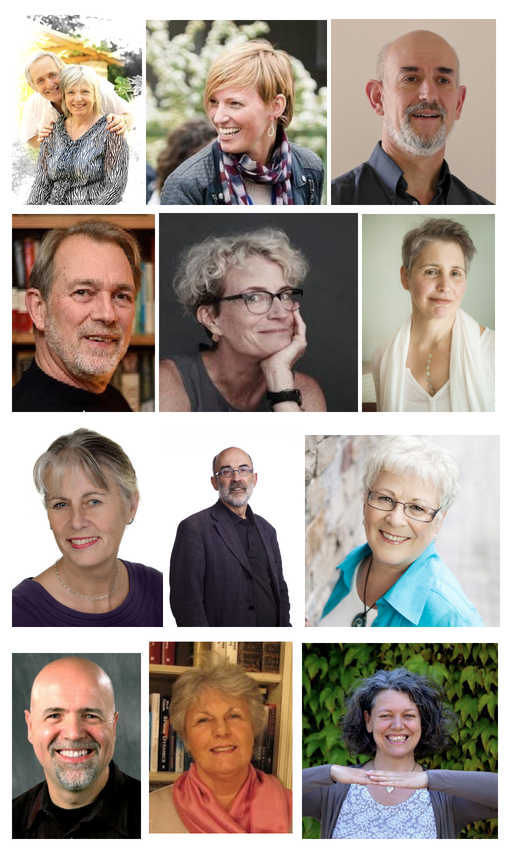 In the AGEISM section, we had a young guest who had only shortly became aware of this phenomenon: Miriam Van Groen in We are all ageist – what to do about it? And Ashton Applewhite, a well-known activist in the “Ageism” – scene who had opened our series last November with YO, IS THIS AGEIST?.
In the AGEISM section, we had a young guest who had only shortly became aware of this phenomenon: Miriam Van Groen in We are all ageist – what to do about it? And Ashton Applewhite, a well-known activist in the “Ageism” – scene who had opened our series last November with YO, IS THIS AGEIST?.
The final celebration of CONSCIOUS AGEING happened online with 11 of our guests in a 90-minute PANEL DISCUSSION. They got to know each other and the desire arose to continue with some group conversations in the future.
We had a constant circle of live viewers, some of which took the opportunity to chat with us live after the main conversation. Most of the times our speakers were present, too, and people could ask specific questions. In other chats, people had the opportunity to give us their views and perspectives on the topic. It is always inspiring to connect with interesting people!
The first round of the CONSCIOUS AGEING series ended with a discussion among the viewers. The now concluded series will be followed up by some additions to this topic. The first one starts on May 26th, going through all June. Come and join us!
Please subscribe to our website and you will get information once or twice a month about our live events where you are invited to participate in all possible ways. Let us know how you see that! And be part of the exploration around AGEING – you are directly and personally connected to that topic – even if you think it doesn’t apply to you (yet)! It will! – Hopefully!
Are you an AGEIST and don’t even notice it?
Are YOU an AGEIST?
It’s not a long time ago that I first noticed that I am behaving as an Ageist. I didn’t even know what that meant, actually I had never heard about it before.
But then, yes, Ashton Applewhite made it very clear to me, that AGEISTS are not only the others but we older people, too. I am not excluded.
So what is AGEISM? It is discrimination of people because of their age. Ageism expresses itself when youz need to be 55 to enter into a retirement community, or when you need to be under 30 to be considered for a certain job, when you tell to a child that it is too young and too stupid to understand or do certain things or when you negate your grandpa to take care for himself instead of being constantly monitored by the relatives.
Ageism is a problem, like Sexism and Racism.
We don’t recognize it so clearly as we, ourselves, have bought into the story our societies have told us for a long time: young people are good, old people a burden (and many variations of that)
Ashton Applewhite will be our first guest in the upcoming series CONSCIOUS AGEING. She lately gave a talk at the UN. Watch it here Ashton’s contribution begins at 28:18.
It is amazing how AGEISM pervades our lives. You will be shocked when you begin to think about it and observe yourself and others. It happened this way to a woman in her 30ies who we have invited to join us in the series next March. Miriam Van Groen
We are looking forward to hearing all these amazing people give their contribution for creating a better life – not only for older people but for all people of all ages.
I am enjoying Aging – what a surprise!
Most people believe that getting older is horrible and that we will be afflicted by all sorts of things, illnesses, missing abilities and so on. I believed that for sure and I remember the day when my first husband turned 40 – which was a catastrophic day for him. Not yet for me, as I was 12 years younger. He believed that he was now going downhill and everything would change for the worse.
Well, in a certain way it did. He worked ever harder to establish himself as an architect – and I was ever more frustrated until I finally left him to go to Italy and study opera singing to fulfill my dream of becoming a good singer.
I did discover my authentic voice, I did concerts and taught others how to use their voice, I found an Italian partner with whom I bought my country house, now called Paradiso Integrale. But life was still unfulfilling, full of work and not much success – measured with the high expectations I had for me as a trained perfectionist.
Life turned better after 40 when I entered the self-discovery path. Psychotherapy, NLP, music therapy, my training in counseling, transpersonal Psychology and many more tools which slowly allowed me to see clearer who I was and where I was about to go. The real breakthrough – although gradually – came with my study of Integral Theory. NOW I really began to understand what before seemed to make no sense to me – and what was bothering me a lot. Twenty rich years of gaining knowledge which I never expected to exist and of experience which I allowed myself to have.
Life is an amazing journey.
I realized how packed I was with false beliefs like: in my age, I will never find THE ONE -but after my coaches training in CALLING-IN-THE-ONE with Katherine Woodward Thomas I met Mark and we are a happy couple in “a relationship beyond our wildest dreams”
( Find the amazing book by Katherine Woodward Thomas here: Calling in the ONE on Amazon)
Life gets better and better, the older I get. And this is not only my personal experience. I came across the same statement by other people and I want to share with you this article by Dr. Bud Harris entitled Aging Strong, The Opportunity of a Lifetime
He says: “I am enjoying aging – what a surprise” . And you can do it, too!
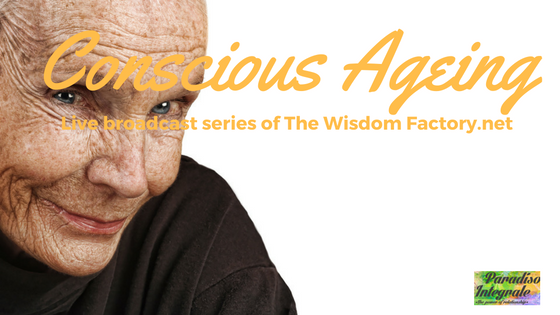
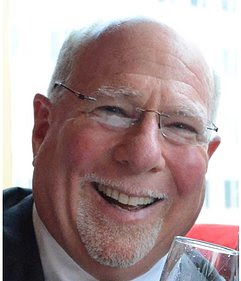
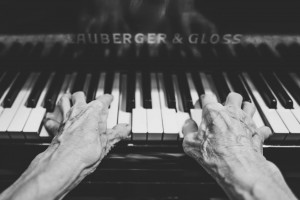
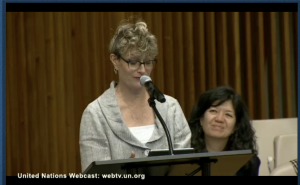
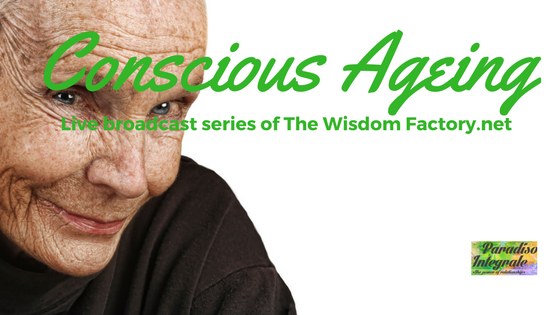
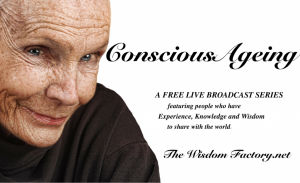
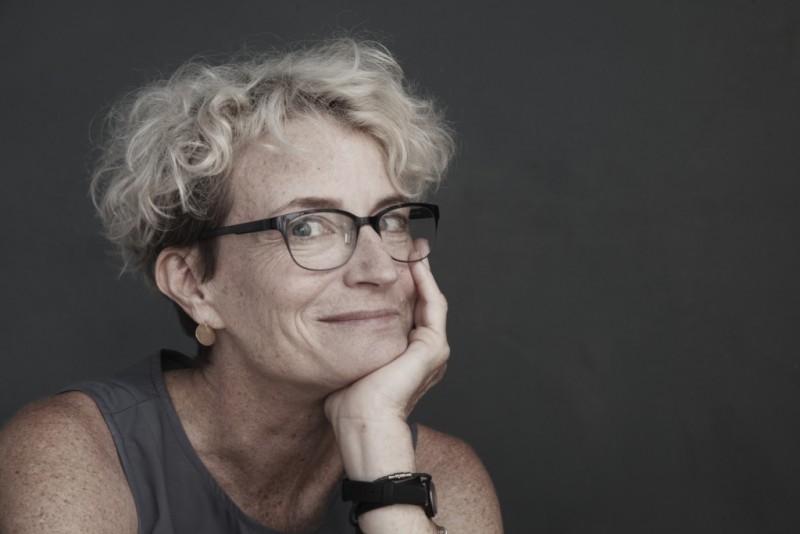
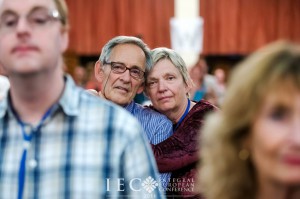

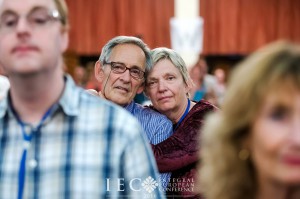
Leave A Comment